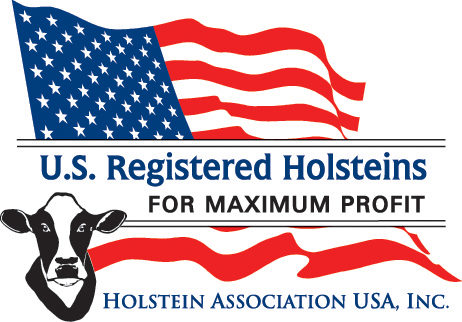One survey was commissioned by the Wisconsin Cheese Makers Association (WCMA), Dairy Farmers of Wisconsin and Edge Dairy Farmer Cooperative. The survey, conducted by market research firm Ravel, evaluated three plant-based foods that mimic dairy cheese to understand if the packaging and descriptions are confusing.
The findings of that survey, released at the Dairy Strong conference, Jan. 23, in Madison, Wisconsin, were included in comments that WMCA and Edge submitted to the FDA, which is collecting public input as the agency considers changes to its enforcement of nondairy labeling rules.
The FDA is accepting comments regarding plant-based, imitation dairy product labels until Jan. 28. To submit comments, visit the FDA website.
“Consumers deserve complete clarity as they choose what to eat and how to feed their families. Our research proves that mislabeling leads people to believe that the nutritional content of plant-based products is equivalent to that of dairy, which is simply not true and potentially harmful to public health,” said Rebekah Sweeney, director of communications, education and policy for the cheesemakers' group. “WCMA members encourage the Food and Drug Administration to enforce labeling standards to help consumers make well-informed choices at the grocery store.”
Among the national survey’s findings:
- Nearly half of customers indicated plant-based foods that mimic cheddar and mozzarella cheese were actually cheese.
- About one-quarter of customers said they don’t know what ingredients are in the plant-based imitations. The same percentage mistakenly thought the products contained milk.
- About one-third of customers think plant-based foods that mimic cheese contain protein, and 21 percent think it is of a higher quality than dairy even though the imitations have little to no protein. Real dairy cheese has 7 grams of protein.
- About one-quarter of customers purchase plant-based foods that mimic cheese because they believe them to be low in calories and fat and without additives. In reality, these plant-based foods contain an equal or comparable amount of fat and calories and substantially more additives than dairy cheeses.
“The Ravel survey findings are similar to other consumer surveys pertaining to food – consumers don’t know what’s in the food they eat regardless of what they hear,” said Patrick Geoghegan, senior vice president, marketing and industry relations at Dairy Farmers of Wisconsin. “The next phase is to understand why consumers associate dairy and nondairy products with differing attributes.”
Brody Stapel, president of Edge Dairy Farmer Cooperative and a dairy farmer in eastern Wisconsin, said the survey demonstrates that words do matter.
“These misperceptions about nondairy foods are real. The imitations confuse customers who rely on names and product packaging to make judgments about a food. Those customers deserve transparency,” said Stapel, whose group represents its member farmers throughout the Midwest on federal policy. “Our dairy farmers and processors work hard to produce incredible food. Milk and dairy products – real dairy foods – offer almost unbeatable nutritional value, and customers deserve to know this.
“The FDA should move to aggressively enforce its existing regulations, which clearly define milk, cheese and other dairy foods as originating from a cow, not a plant.”
Survey: Only 1-5 consumers think plant-based imitators should be called milk
A second-look survey of consumer research showed Americans widely disapprove of the use of dairy terms by manufacturers of imitation products. And, it also provided evidence of consumer confusion on the nutritional content of milk versus plant-based imitators.
The national survey, commissioned by Dairy Management Inc. and conducted by IPSOS, a global market research and consulting firm, found:
- Only 20 percent of all consumers said plant-based beverages should be labeled milk, as U.S. dietary guidelines do not recommend imitators as a substitute for dairy milk; even when limited to buyers of plant-based drinks, support for mislabeling rose to only 41 percent.
- About 50 percent of consumers mistakenly perceive that the main ingredient of a plant-based beverage is the plant itself; such drinks are mostly flavored water.
- More than one-third of consumers erroneously believe plant-based beverages have the same or more protein than dairy milk. Milk has up to eight times more protein than its imitators.
“This new data is more proof that the plant-based food and beverage industry is exploiting consumer confusion to boost their bottom line, and consumers don’t like it,” said Jim Mulhern, president and CEO of the National Milk Producers Federation (NMPF). “Plant-based beverage brands that sell nutritionally inferior products under the health halo of milk mislead consumers. FDA must enforce its existing regulations.”
The new data builds on previous surveys, including one from August showing 53 percent of all consumers said they believed plant-based food manufacturers labeled their products “milk” because their nutritional value is similar, even though products widely vary in content.
An October poll found one-quarter of consumers either thought almond drinks contained cow’s milk or weren’t sure. Meanwhile, a January survey found consumers, by nearly a 3-1 margin, calling for FDA to end the mislabeling of fake milks.
Read also: Weekly Digest: Poll shows consumers want FDA to end misleading ‘milk’ labels. ![]()

-
Dave Natzke
- Editor
- Progressive Dairyman
- Email Dave Natzke





